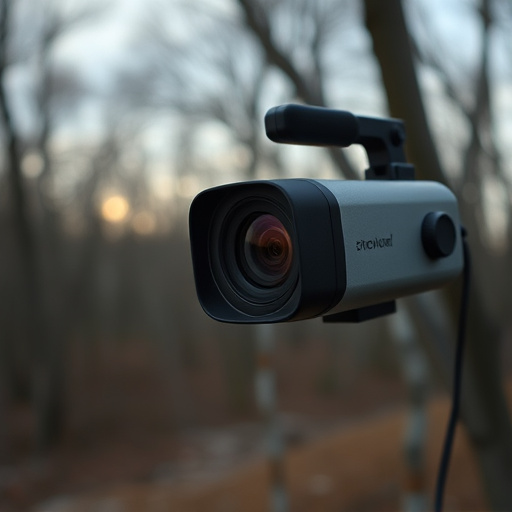The installation of hidden cameras, especially with Spy Camera Artificial Intelligence (AI) integration in rental properties, raises legal concerns regarding tenants' privacy. While landlords have rights to monitor, unauthorized camera placements are illegal without tenant consent. AI-powered systems, while enhancing security through real-time analysis and advanced features, require transparency between landlords and tenants. The creative use of technology in surveillance equipment like smart mirrors or hidden fixtures balances security with the potential for ethical violations, emphasizing the need for respect of private spaces and compliance with local tenancy laws.
In the digital age, privacy concerns have reached new heights, especially within rental properties. This article delves into the intricate world of secret surveillance spots in rented spaces, exploring the legal implications and ethical quagmires that arise from hidden camera placement. With advancements in artificial intelligence (AI) integration enhancing spy camera capabilities, understanding these issues is crucial for both landlords and tenants. Uncommon places cameras might be hidden are also discussed, shedding light on potential violations of tenant rights and offering insights into navigating this complex landscape.
- Understanding Legal Implications of Hidden Cameras in Rentals
- How Artificial Intelligence Enhances Spy Camera Integration
- Uncommon Places Landlords Might Hide Cameras
- Ethical Considerations and Tenant Rights Violations
Understanding Legal Implications of Hidden Cameras in Rentals
The installation of hidden cameras in rental properties raises significant legal questions, especially as technology advances with Spy Camera Artificial Intelligence Integration. While landlords have certain rights to monitor and maintain their properties, the use of surreptitious surveillance devices is a complex matter. Many regions have strict privacy laws that protect tenants from unreasonable searches and seizures, which could include the unauthorized placement of cameras in living spaces.
Tenants’ consent is generally required for any form of monitoring within private areas of rental units. Unauthorized installation of spy cameras can lead to severe legal consequences, including potential fines and damage to the landlord-tenant relationship. With AI integration, identifying and mitigating these hidden devices becomes more challenging, emphasizing the need for transparency and open communication between landlords and tenants regarding security measures.
How Artificial Intelligence Enhances Spy Camera Integration
Artificial Intelligence (AI) is transforming the way spy cameras are integrated into rental properties, enhancing privacy and security measures. By leveraging AI algorithms, camera systems can now analyze footage in real-time, detecting unusual activities or potential threats with unprecedented accuracy. This advanced technology goes beyond basic motion detection, enabling smart surveillance through facial recognition, object identification, and behavioral analysis.
AI-powered integration allows for more efficient monitoring, as cameras can prioritize alerts based on learned patterns and anomalies. For instance, an AI system can recognize regular tenant movements and alert the landlord only when unusual behavior is detected, such as unauthorized access or suspicious activities. This not only improves privacy but also reduces false alarms, making surveillance more effective and responsive.
Uncommon Places Landlords Might Hide Cameras
In their quest for comprehensive surveillance, some landlords may opt for less obvious strategies, leveraging uncommon places to hide spy cameras. These innovative but clandestine devices can be integrated into everyday rental property items through Artificial Intelligence (AI) advancements. For instance, smart mirrors or picture frames with built-in camera lenses offer subtle yet effective monitoring solutions. AI algorithms enhancing these devices allow them to blend seamlessly into the décor while capturing footage discreetly.
Moreover, landlords might conceal cameras within seemingly innocuous appliances like air conditioners, fire alarms, or even light fixtures. These hidden gems leverage AI for advanced motion detection and facial recognition capabilities, ensuring landlords gain valuable insights without raising suspicions among tenants. Such stealthy surveillance tactics highlight the evolving landscape of rental property management, where technology plays a pivotal role in maintaining security and order.
Ethical Considerations and Tenant Rights Violations
The integration of spy cameras and artificial intelligence in rental properties raises significant ethical concerns and potential violations of tenant rights. While landlords have a legitimate interest in maintaining security and managing their assets, they must respect the privacy of their tenants. Hidden surveillance equipment, especially when equipped with AI for facial recognition or behavior analysis, can create an atmosphere of constant monitoring and make tenants feel unnerved and insecure.
Tenants have a reasonable expectation of privacy within their rental homes, and any surveillance measures should be transparent and legally justifiable. The use of artificial intelligence to process and interpret data from these cameras further complicates the issue, as it can lead to more invasive data collection and potentially discriminatory practices. Landlords must ensure that they comply with local tenancy laws and respect the boundaries between property management and personal privacy.
In light of the above discussions, it’s crucial to recognize that while advancements in spy camera artificial intelligence integration offer enhanced security for landlords, it also raises significant ethical considerations and tenant rights violations. Understanding the legal implications is key to ensuring a balance between privacy protection and legitimate surveillance needs. Tenants must be aware of potential hidden camera locations, and both parties should adhere to fair and transparent practices to maintain a harmonious rental relationship.
